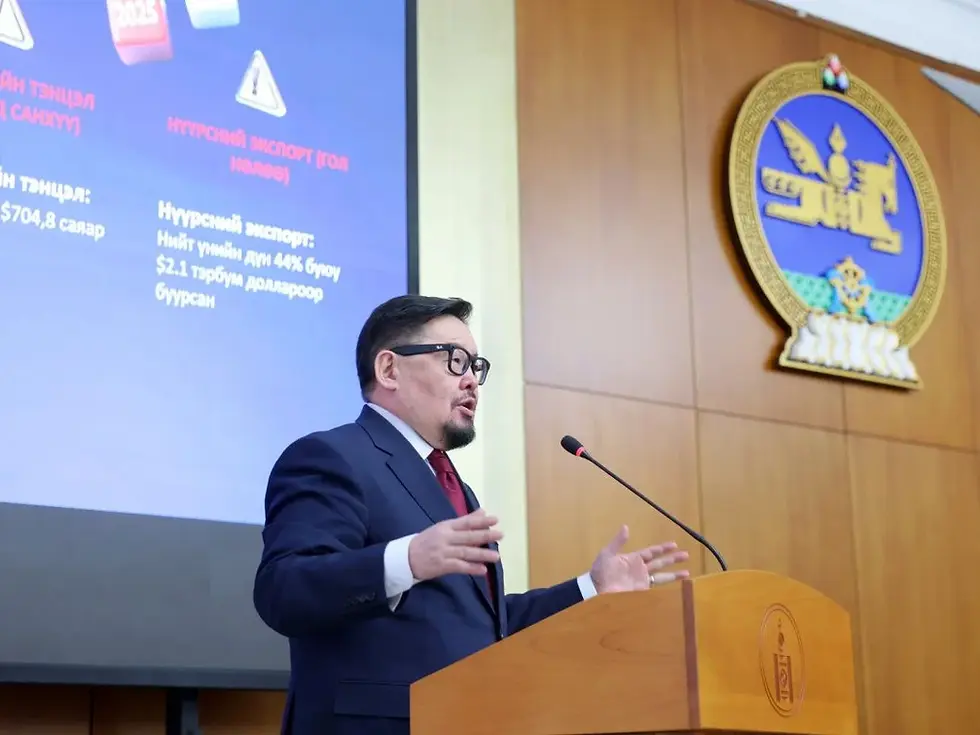Mongolia's Education Loan Fund Scandal Reveals Widening Wealth Gap
- Mongolia Weekly

- Jun 13, 2023
- 4 min read
Mongolia, a country that has long recognized the transformative power of education, finds itself grappling with a disheartening trend that exposes the deepening inequality between its affluent and impoverished citizens.
Recent revelations have brought to the forefront allegations of government fund abuse, as the children of Mongolia's elite stand accused of exploiting the Education Loan Fund, further exacerbating the socioeconomic divide.
This scandal not only sheds light on the alarming wealth gap but also serves as a cautionary tale for aspiring politicians who harbor ambitions of running in the upcoming 2024 parliamentary elections.

Throughout the years, Mongolia has sent its brightest young talents to advanced nations, recognizing education as a catalyst for progress and development. While the Soviet Union was once the primary destination during the communist era, the advent of democracy in the past three decades has expanded the choices to include the United States, Europe, Japan, and Korea.
Acknowledging the importance of fostering global competence, the Mongolian government initiated the financing of international studies at the top 100 universities worldwide.
However, concerns have recently surfaced regarding the misuse of government funds allocated for these educational opportunities. A former Deputy Minister of Mining and Heavy Industry, himself a Harvard graduate, revealed a disconcerting trend in which a significant number of students, predominantly high-ranking officials and their dependents, obtained loans from the Education Loan Fund without fulfilling their repayment obligations.
The former minister disclosed that over 2,300 students failed to repay their loans, with a staggering 90 percent of them having ties to influential figures within the government.
A former employee of the Education Loan Fund corroborated this, confirming the misappropriation of funds benefiting students with political connections.
Allegedly, each loan, ranging from $30,000 to $200,000 per student, was granted without adhering to proper selection processes, further fueling concerns about favoritism and the abuse of power. By diverting government funds to finance their children's studies at prestigious universities abroad, the privileged few effectively obstruct access to educational opportunities for those in genuine need. This resulting disparity in wealth, opportunity, and values undermines the principles of meritocracy and social mobility that should form the bedrock of any equitable society.
As public awareness of this scandal grows, so too does the public outrage. Many demanded borrowers who have taken loans from the Education Loan Fund to promptly repay their debts.
However, some borrowers claim exemption from repayment by citing a requirement to work in the country for five years after graduation, asserting that the funds were granted as a grant rather than a loan. Yet, these claims are met with skepticism, as the absence of clear legal provisions supporting such exemptions raises concerns of power misuse and circumvention of established procedures.
Moreover, the issue extends beyond the misuse of the Education Loan Fund. Mongolian universities have long struggled to provide quality education, resulting in a strong demand among Mongolians to seek education abroad at prestigious institutions.
The combination of this demand and the lack of oversight and accountability in fund allocation has created an environment ripe for exploitation and the entrenchment of privilege.
The misuse of Mongolia's Education Loan Fund by the country's elite reveals a disturbing trend of increasing inequality and the erosion of equal opportunities. Furthermore, it appears to be a politically motivated tactic aimed at undermining political opponents, as the children of leaders from the Democratic and National Labor Parties were specifically singled out. Also, it has come to light that the child of the construction minister, who has been in disagreement with his cabinet regarding electoral reforms, has also received a student loan.
Some politicians, including the education minister and opposition party leaders, swiftly repaid their loans for their dependents as the scandal escalated, attempting to mitigate the political fallout.
The palpable public outrage serves as a resounding message that Mongolians will no longer tolerate the perpetuation of privilege at the expense of the nation's development and prosperity. A similar wave of public anger occurred in late 2018 when high-ranking officials and politicians funneled subsidized loan money to their family and friends from government funds intended to support small businesses. This outcry resulted in the removal of the parliament speaker, a cabinet reshuffle, and numerous politicians losing their renomination for the 2020 elections.
The next scandal expected to emerge revolves around the farmer subsidy fund, with several politicians allegedly implicated in abuse and corruption. Given the country's heavy dependence on government funds, nearly every businessman-turned-politician in Mongolia is entangled in the web of state subsidies, loans, or state procurement.
As part of his unwavering commitment to combat corruption, Prime Minister Luvsannamsrain Oyun-Erdene and his close allies are actively pursuing the establishment of a definitive separation between business interests and political endeavors. Their objective is to ensure that these realms maintain a prudent distance from one another.
However, the potential costs associated with these demanding reforms, which are aimed at reinstating integrity within public institutions, remain uncertain. Maintaining a delicate balance is crucial when implementing these reforms, as excessive pressure and targeting influential politicians as scapegoats could potentially undermine Oyun-Erdene's support from his political allies.
Access exclusive intelligence and analysis from Mongolia in one weekly newsletter by signing up to Mongolia Weekly here. Use MW97 code to get 97% off from your first month subscription!



Comments